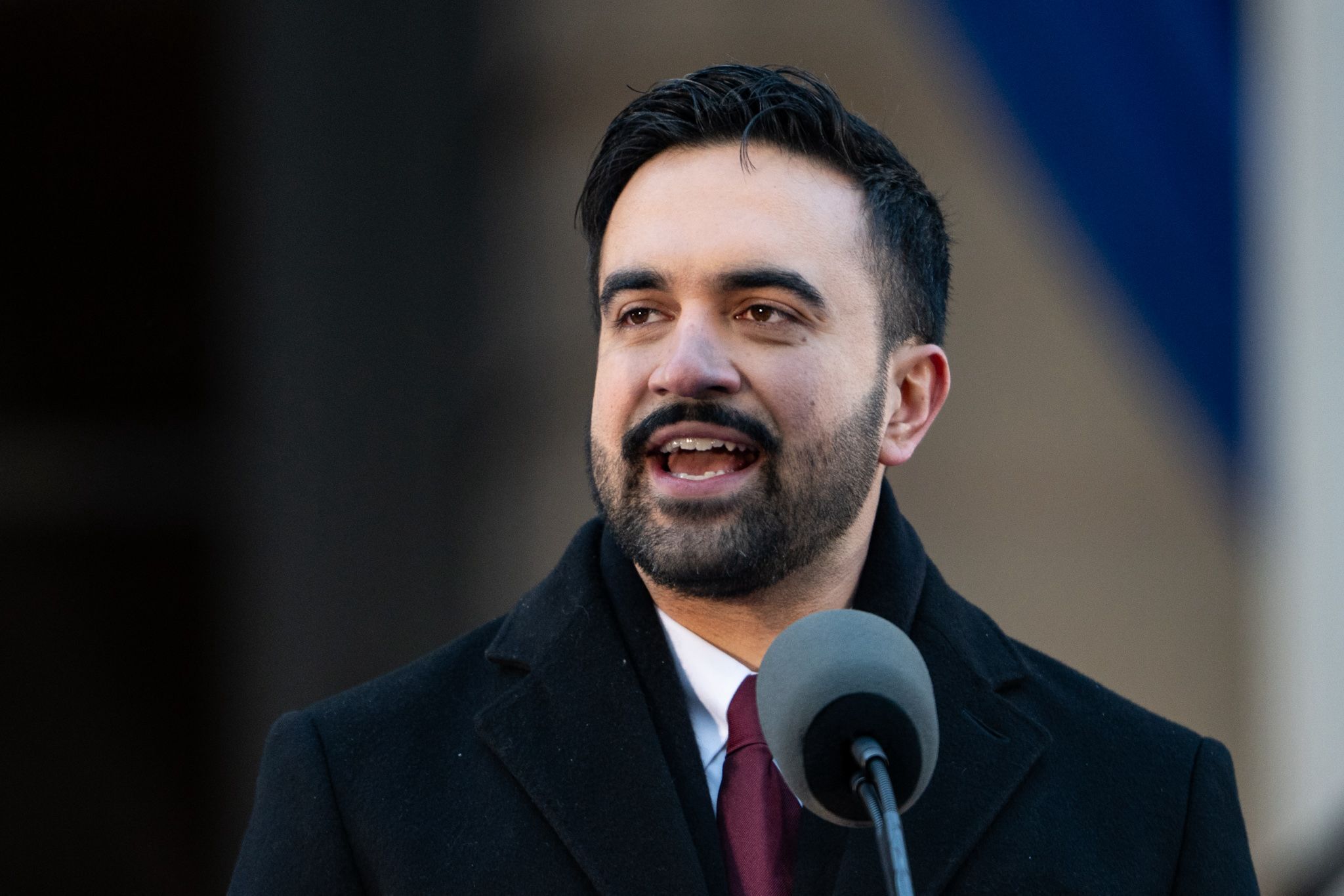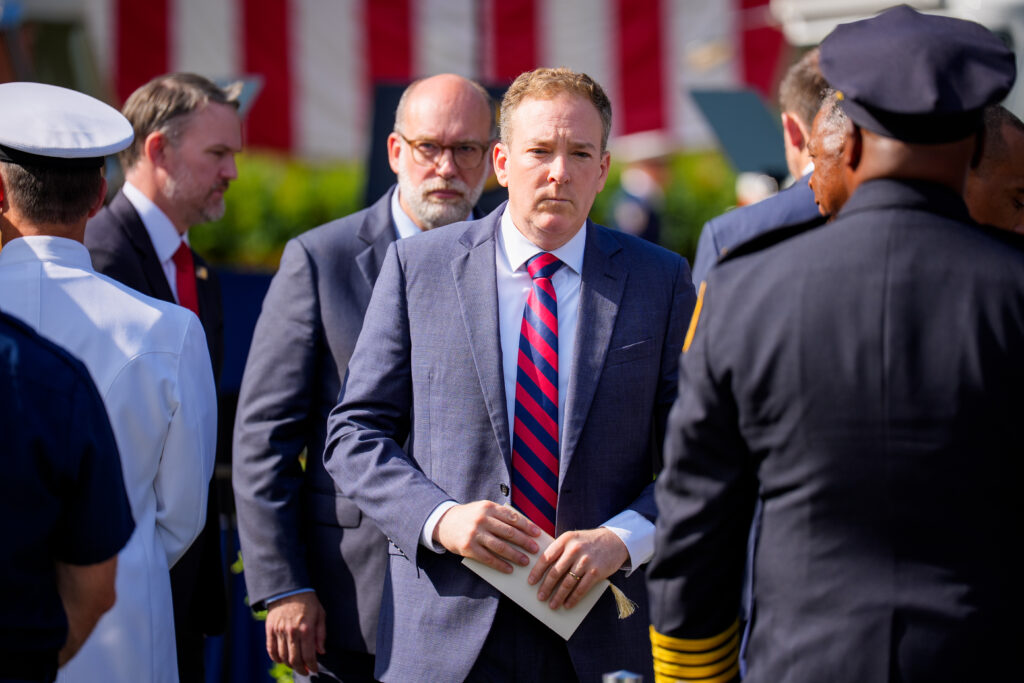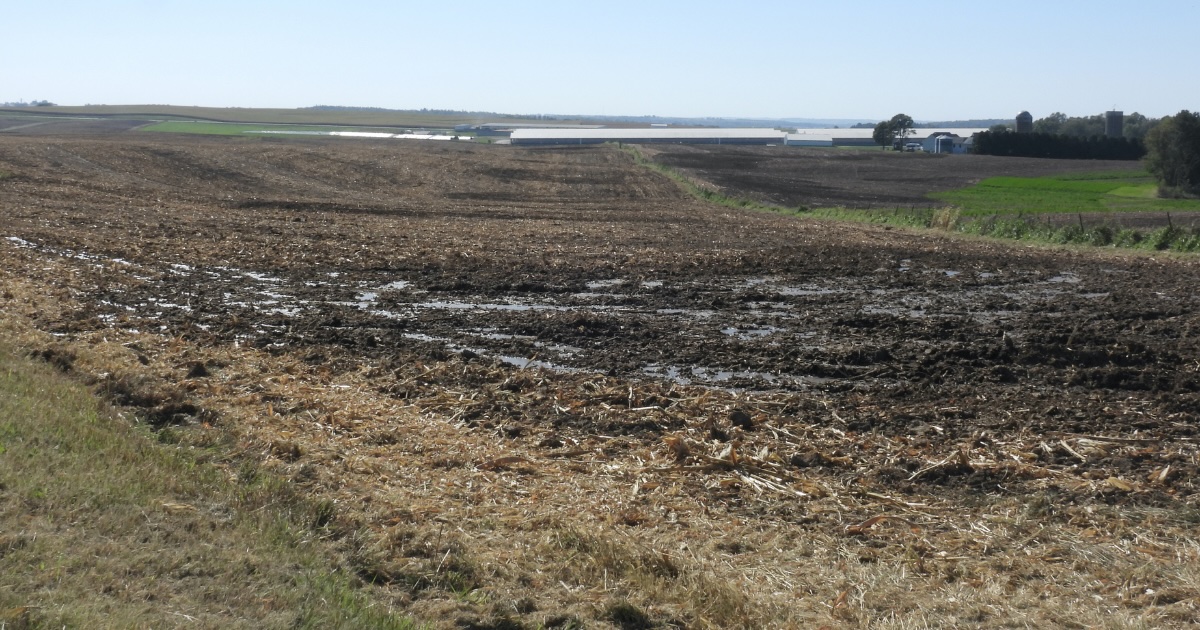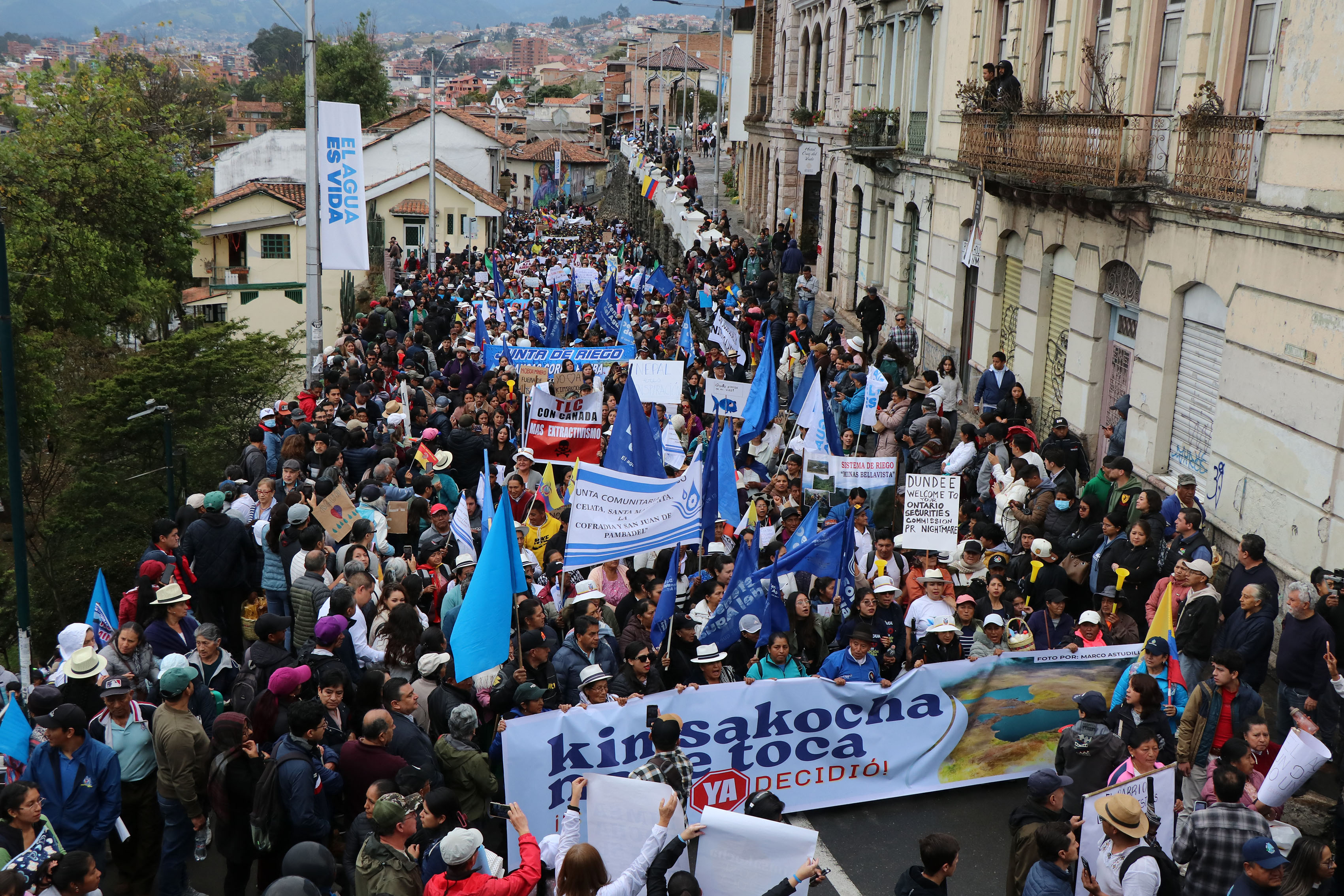From our collaborating partner Living on Earth, public radio’s environmental news magazine, an interview by Jenni Doering with Nisreen Elsaim, a Sudanese environmental and climate activist.
In 1961, President John F. Kennedy founded the United States Agency for International Development. USAID was the right hand of American soft power during the height of the Cold War; agency staff and contractors fanned out throughout the developing world bearing the fruits of America’s bounty, like health care, nutrition, infrastructure and education programs. For populations ravaged by war and famine, USAID funding and supplies provided an invaluable lifeline.
But this lifesaving work has been thrown into chaos with the Trump administration orders to freeze all foreign assistance and lay off nearly all USAID staffers.
Sudanese climate and environmental activist Nisreen Elsaim fled her home in Khartoum with her infant son following the outbreak of the fighting between two rival military factions in 2023. Climate disruption from extreme droughts to floods has aggravated the humanitarian crisis, and now the United Nations says nearly 25 million people, or half the Sudanese population, face acute hunger.
We’re hiring!
Please take a look at the new openings in our newsroom.
See jobs
Elsaim spoke to us from Doha, Qatar, where she is a volunteer with the Sudanese NGO Female Guardians of the Revolution, which provides psychological and therapeutic support for women refugees. This interview has been edited for length and clarity.
JENNI DOERING: NBC and other media outlets are reporting that hundreds of community kitchens across Khartoum, Sudan, are being shuttered because of the USAID shutdown. Can you share some of the stories that you’ve heard?
NISREEN ELSAIM: The siege was built around many, many of the big neighborhoods and cities inside of Sudan, and especially in Khartoum; the only way to have full access to people is through the community kitchens. At the beginning it was purely support from the Sudanese diaspora, from people who managed to flee the war but thought of their neighbors, from people who had some savings and could not eat alone. Then it developed into a big initiative, and USAID was one of the biggest supporters.
It is very important to highlight that Sudan reached stage five famine more than three times over these two years, which means that the malnutrition situation and access to food is very critical, and food insecurity is the biggest headline of this war right now. Unfortunately, all of this is quite impacted right now by the stop of USAID.
DOERING: What other aid efforts are being disrupted?

ELSAIM: Health is a huge problem right now in Sudan, because there are no sanitation systems because of the cholera outbreak, the dengue fever outbreaks and malaria outbreaks. There was a huge aid sector for medicine and hospitals and moving clinics that also stopped.
USAID was also one of the biggest supporters for the psychological support that many of the big organizations inside of Sudan and outside of Sudan were giving to the victims of rape, to the victims of the war, people who have traumas from the killing and from the blood and from everything. Even if you are hungry one day or two days, then you can eat on the third day. But if you have depression, or if you reach a point where you want to kill yourself after being raped, or if you really need an urgent counseling, all of these activities were very much supported by USAID. Female Guardians of the Revolution has worked with almost 10,000 victims since the war started, with continuous counseling—all of these efforts are stopping.
DOERING: It sounds like the people who have been traumatized, especially women who have gone through horrible sexual assaults and need counseling, will just have to endure going through this alone, with fewer resources?
ELSAIM: Yes, and unfortunately, this is something not a lot of organizations work on, because normally, donors and funders have thematic areas that they work on. They have priorities. And I can tell you not many organizations have psychological support or mental health in their profile, which leaves a huge gap.
DOERING: USAID has actually provided some support to help during the time of Ramadan, which is coming up. Can you describe what that looked like?
ELSAIM: It’s normally food. We used to do what we call a Ramadan bag, which is a bag of solids and seeds and oil and some spices and rice for people who will be fasting during the holy month; USAID was a huge supporter. We keep receiving emails and messages and phone calls asking if we will be able to provide Ramadan bags this year or not, and we are in a continuous search for alternatives.
But unfortunately, time is too short. The decision was so sudden to the point that people now can’t find alternatives this quickly, which means that a lot of time-sensitive things like medical support, like Ramadan bags, for example, will unfortunately have to stop this year.
This story is funded by readers like you.
Our nonprofit newsroom provides award-winning climate coverage free of charge and advertising. We rely on donations from readers like you to keep going. Please donate now to support our work.
Donate Now
DOERING: Given the impact of the climate crisis and the war, how does the interruption of USAID funding and operations further complicate life for the Sudanese people?
ELSAIM: The problem is even bigger than USAID, because Trump pulled out of the Paris Agreement for the second time. Climate change is not a border-bound problem. It’s not like the war. When you cross the border, then you are in a different country and different reality. Climate change will hit everyone, and you in the U.S. have a very, very recent example of the wildfires that happened in California, and burned one of the most expensive places in the U.S. Fires don’t say, “Oh, this is a celebrity’s house; I will not touch it. Oh, these are poor people’s houses, I will just burn it.” It burned everything and everyone.
Trump is very much known as a climate denier and [it] is not only USAID, it’s not only pulling out [of] the Paris Agreement; even the White House pages online about climate change are down. I think re-electing him was a huge setback to the democratic processes of the United States of America as a free country, as a country of opportunity, as a country of law and the country of democracy.
DOERING: As a humanitarian and an activist, what are your long-term concerns about the impact of the USAID shutdown and these other Trump administration actions?
ELSAIM: I’m really, really worried that institutional changes will happen. I’m really worried that the impact of these four years of Trump ruling will not remain in these four years like previously when he was in power, but will leave scars that will stay in the American fabric and the international situation for many years, maybe for decades. I mean, we can all remember what George W. Bush did when he entered Iraq, and the Iraq war is still a huge black page in American history. People are still talking about it, and Iraq still hasn’t recovered. Unfortunately, what a great country like America does does not only impact America, and it does not end by the end of the election period for the candidate, it stays for decades and maybe forever.
DOERING: Supporters of the Trump administration might argue that other wealthy Arab and European nations should step up and fill the international aid void left by the U.S. government. What’s your response to that assertion, and how realistic is it?


ELSAIM: It’s not about who’s going to step up and close which gap. It was the very good will of the American people and the taxpayers who decided to contribute their money, not only to their own wealth and health and welfare, but also to the rest of the world.
If we took one example, the climate change issue: It is a historical obligation, but also a scientific obligation, the most important ethical and financial obligation of the U.S. because of the history of the emissions since the Industrial Revolution, to really help the developing countries to adapt to climate change and mitigate CO2 emissions, and also to help other developing countries who have big emissions to shift to green energy. It’s not only good will, it’s the current economic situation. The current position of the U.S. in the world was gained by a lot of emissions during the Industrial Revolution, and these emissions are what is causing the climate change that we are all suffering from right now.
DOERING: It sounds like you’re saying this isn’t just a matter of charity, but of responsibility and duty.
ELSAIM: Definitely.
DOERING: If you could send a message to President Trump and the American people about the importance of USAID to the world, what would you say?
ELSAIM: I don’t think that I want to send any message to Trump. I don’t think it’s useful.
What I think would be really useful is to send a message to Americans, and this message will be what we say about climate change all the time: No one is safe. It’s just like the COVID. No one is safe until we are all safe. It goes for everything. If you want democracy in your country, then we have to have a democratic world.
This is part of what USAID was doing. If you want a peaceful world, then you have to work for peace. This is also part of what the U.S. was doing. If you want a healthy planet and healthy people and healthy country, and you don’t want another pandemic, then you also need to talk about the health of the whole globe, not only the U.S. Some things don’t really know boundaries, and it will catch you wherever you are.
About This Story
Perhaps you noticed: This story, like all the news we publish, is free to read. That’s because Inside Climate News is a 501c3 nonprofit organization. We do not charge a subscription fee, lock our news behind a paywall, or clutter our website with ads. We make our news on climate and the environment freely available to you and anyone who wants it.
That’s not all. We also share our news for free with scores of other media organizations around the country. Many of them can’t afford to do environmental journalism of their own. We’ve built bureaus from coast to coast to report local stories, collaborate with local newsrooms and co-publish articles so that this vital work is shared as widely as possible.
Two of us launched ICN in 2007. Six years later we earned a Pulitzer Prize for National Reporting, and now we run the oldest and largest dedicated climate newsroom in the nation. We tell the story in all its complexity. We hold polluters accountable. We expose environmental injustice. We debunk misinformation. We scrutinize solutions and inspire action.
Donations from readers like you fund every aspect of what we do. If you don’t already, will you support our ongoing work, our reporting on the biggest crisis facing our planet, and help us reach even more readers in more places?
Please take a moment to make a tax-deductible donation. Every one of them makes a difference.
Thank you,
















